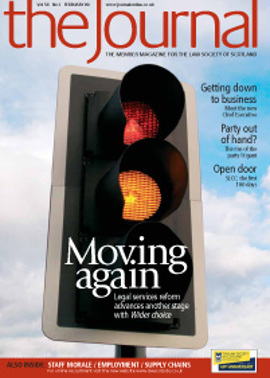Shifting sands

The law of privacy and defamation consistently rates among the most fascinating aspects of modern legal practice – and one that’s in a continuing state of flux.
Recent case law concerning defamation on the internet has demonstrated an ongoing shift in defining the jurisdiction of publication, the concept of “substantial publication”, and what constitutes a legitimate claim.
When publication is not enough
In Gutnick v Dow Jones [2002] HCA 56, the High Court of Australia considered a defamation action based on the 28 October 2000 edition of Barron’s Online, published by Dow Jones in New Jersey. Dow Jones argued that publication on the internet occurred only in the place where the article was uploaded onto the server. The High Court of Australia disagreed, ruling that publication occurs wherever the article is read.
Subsequent cases have sought to limit the consequences of this ruling.
Amoudi v Brisard [2007] 1 WLR 113 established the need to prove substantial publication – i.e. that enough people within the jurisdiction accessed the article complained of to justify the action being pursued. With only five people within the relevant jurisdiction having accessed the website in question, the claim was struck out as an abuse of process.
More recently, in Ewing v Times Newspapers [2008] CSOH 169, Lord Brodie granted an order for caution in relation to the case of a pursuer he described as a “recreational litigant” who had travelled to Edinburgh for the sole purpose of reading both the print and online editions of the Sunday Times in order to then be able to raise a defamation action in Scotland.
Battle of the articles
It is only in the last decade that the fundamental principles of the law of privacy in its present-day form – largely to be found in the Human Rights Act 1998 – have been developed and applied. Based on the facts of the particular case, now at the heart of the legal test is which Convention right – that to freedom of expression expressed in article 10 or that to protection of private life expressed in article 8 – should take precedence.
The delicate balance between these rights has been no more contentiously tested than in the recent high-profile case of Mosley v News Group Newspapers Ltd [2008] EWHC 1777 (QB).
vThe claimant initially sought an interim injunction against use of a 90-second video clip of a party – described by the newspaper as a Nazi-themed orgy. This was rejected on grounds that the material had already been published so widely that an injunction would make little difference. Proceeding to a full trial, the claimant successfully claimed damages for breach of his Convention right under article 8.
The defendant contended both that the claimant had no reasonable expectation of privacy and that the claimant’s right to privacy under article 8 of the Convention was outweighed by a greater public interest in disclosure, such that the defendant’s right to freedom of expression under article 10 should prevail.
Mr Justice Eady concluded that the claimant had a reasonable expectation of privacy, and rejected the defendant’s contentions that criminal activity was involved and was exposed by the newspaper.
Press reaction was swift. Daily Mail editor Paul Dacre condemned the judgment, saying: “inexorably, and insidiously, the British press is having a privacy law imposed on it”.
Going continental
It is certainly true that, over recent years, there has been a sea change in how the law looks at the privacy of public figures or celebrities. As Hugh Tomlinson QC has summed up: “The law of privacy has come a long way in a short time... Under the influence of the human rights case law from Strasbourg, we are moving slowly but inescapably towards the stricter privacy protection of French or Italian law.”
There can be no doubt that, in applying the established principles to a classic tabloid sex story, Mosley has helped to show where the lines are drawn.
With new case law and ongoing changes to communication technology, the appropriate balance between privacy and freedom of speech will continue to be redefined. So it’s a racing certainty that media law will fascinate for years to come.
Alistair Clark QC and Roddy Dunlop are members of Axiom Advocates. Roddy Dunlop specialises in media law; Alistair Clark QC has been instructed in defamation actions, and in cases on privacy and confidentiality.
In this issue
- Cross-border disputes: new rules
- Beyond the downturn
- Take a business view
- Amber alert
- ARTL - time to reflect
- Jack to the future
- Party time
- Head of steam
- Big names for Society's big date
- Employment: without prejudice
- Simple steps
- Taken on credit
- Positive returns
- Electrical storm on the horizon?
- What's on file?
- Ask Ash
- New cases, old problems
- Fair sharing of less
- Beware - simpler rules
- Shifting sands
- Offer you can't refuse
- Website review
- Book reviews
- Weakest link
- Servitudes - new ground?






